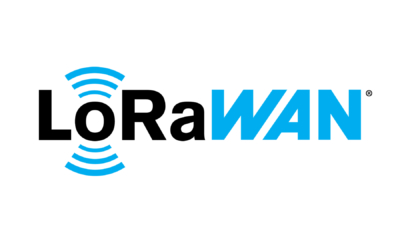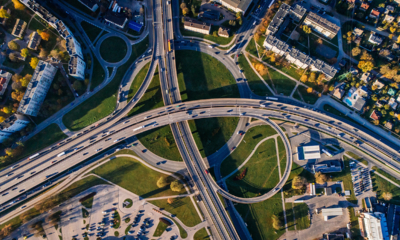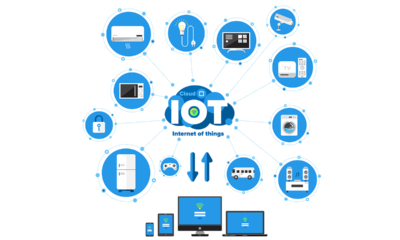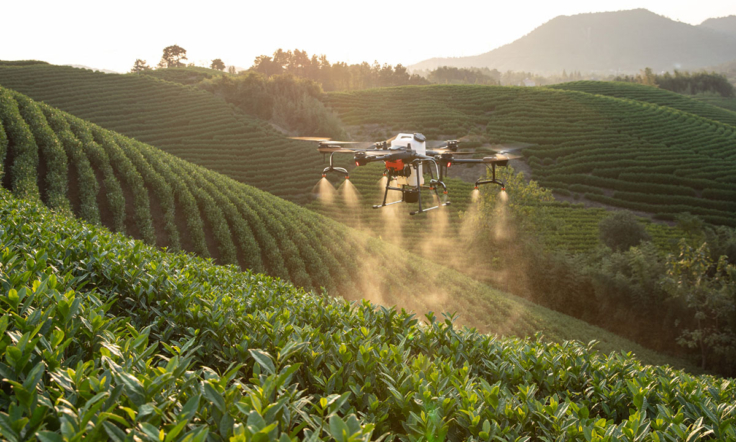
UAV’s are increasing their importance day by day. It has reached a wide range in the Defense Industry and military security. Apart from these areas, it is actively uses in different areas such as logistics, fire fighting, agriculture, earthquake debris detection, water resource exploration, oil natural gas pipeline security and also in cinema sector.
With the usage of UAV’s in the agricultural field farmer’s labor made easier,it also leads to time savings, cost savings and increase the productivity. For this reason, many people and organizations dealing with the agricultural sector have turned to use Agricultural Unmanned Aerial Vehicles (AUAV’s).
There are arious trainings given by authorized institutions of General Directorate of Civil Aviation (GDSA) in order to use unmanned aerial vehicles and also provides UAV’s Pilot training in our country.
In general, the weight of AUAV’s can be in the range between 15-50 kg, depends on containing drugs at the rate of liters on them. In order to operate UAVs of these weights pilot certificate is required.
Piloting is divided into 4 different categories based on take-off weights:
UAV’s in the range between 500 gr – 25 kg = UAV 0;
UAV’s in the range between 4 kg – 25 kg = UAV 1;
UAV’s in the range between 25 kg – 150 kg = UAV 2;
UAV’s in the range between 150 kg and above = UAV 3;
Agricultural Usage of Unmanned Aerial Vehicles;
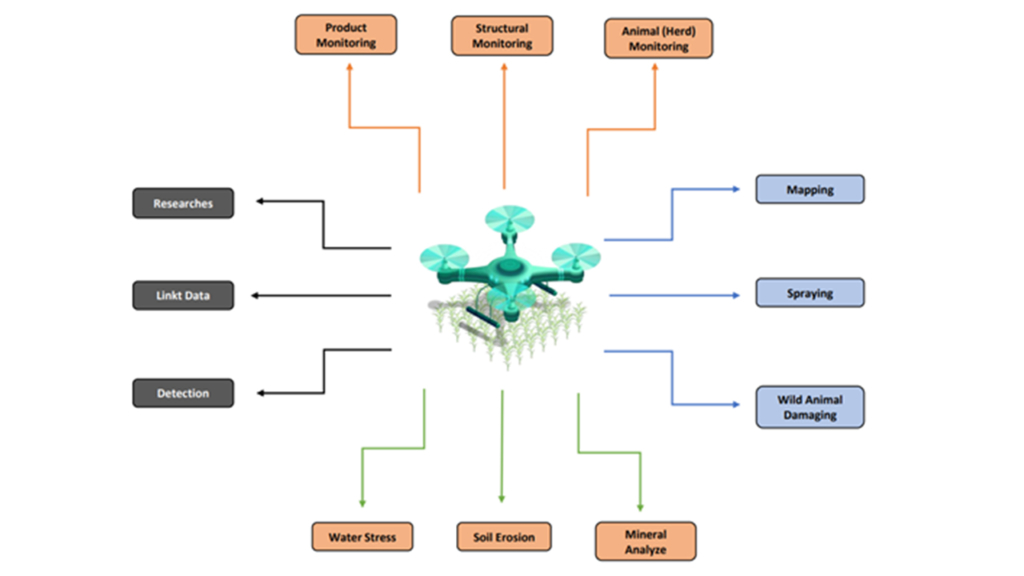
With the using of UAV’s in the agricultural field has increased the precision of the studies. In this direction, have also increased analysis capabilities, data processing, interpretation and image processing techniques. Precision agriculture area was born and plant monitoring, sick plant detection, yield monitoring, weed detection, soil yield, plant growth rate and water resources research have reached a short and effective results. Therefore in order to heal disease-detected plants amount of chemicals to be used has been decreased and the yield has been increased.
The cameras and sensors used in a plant monitoring, sick plant detection, weed detection, are the biggest factors in increasing the yield. It is extremely important to use sensors that are closest to the natural image and transmit reality most accurately. Thermal sensors showing the temperature of plants and the environment, Lidar sensors that obtain images in three-dimensional environment, infrared Multispectral and Hyperspectral sensors are in used. Through these sensors, weed and plant, fertile region and unproductive region, the region with lack of water and the region that does not need water, healthy plant and unhealthy plant, the region that needs to be sprayed and the region that is not required are determined, and with digitalization of factors such as time, cost and labor resources in agricultural activities are increases overall efficiency and profit.
